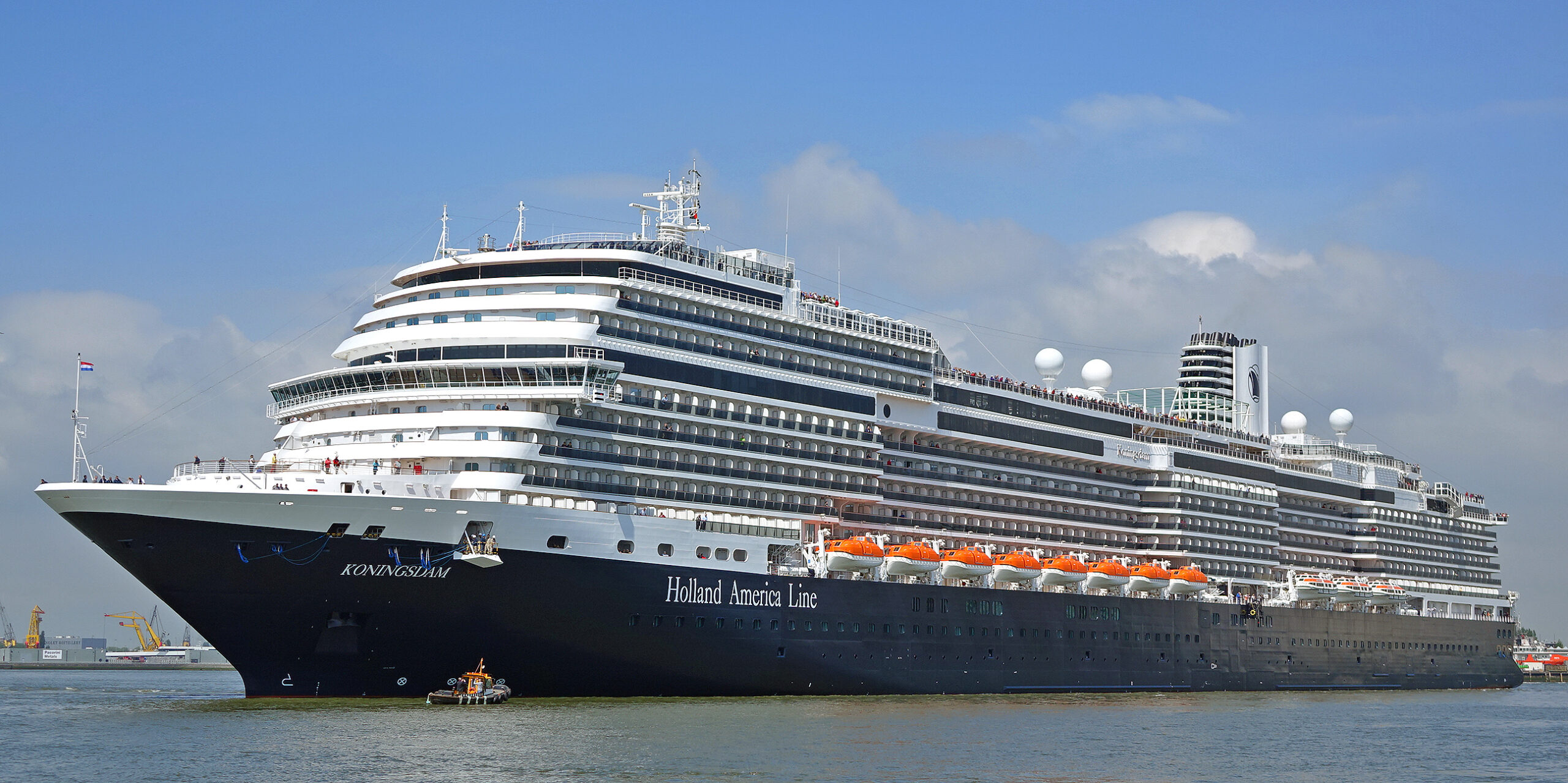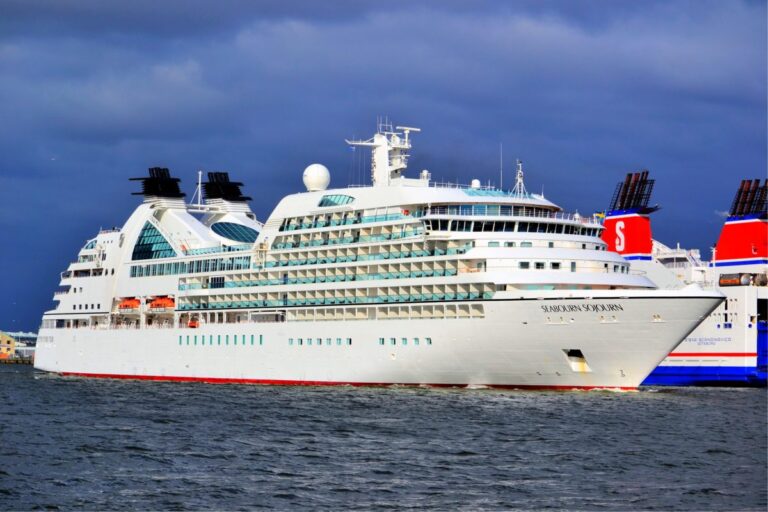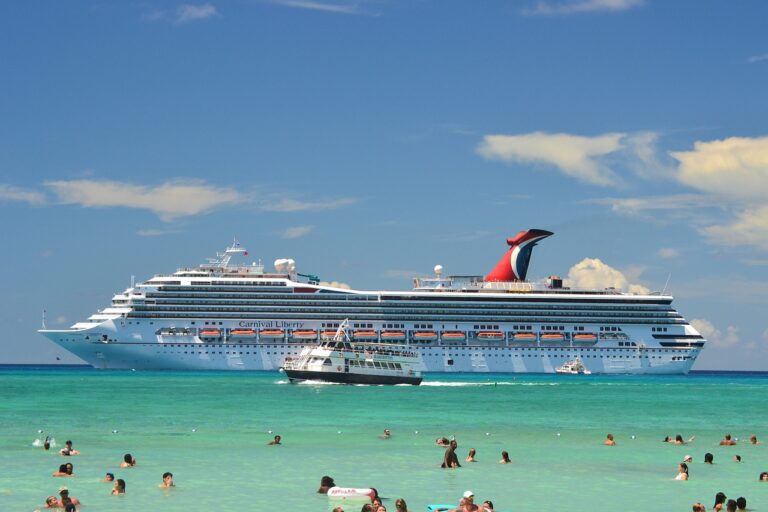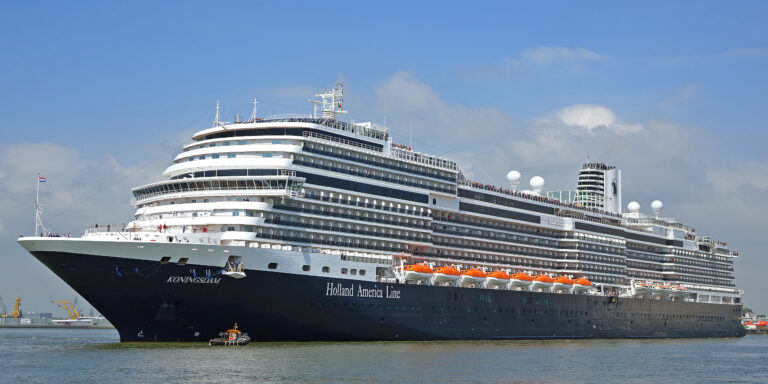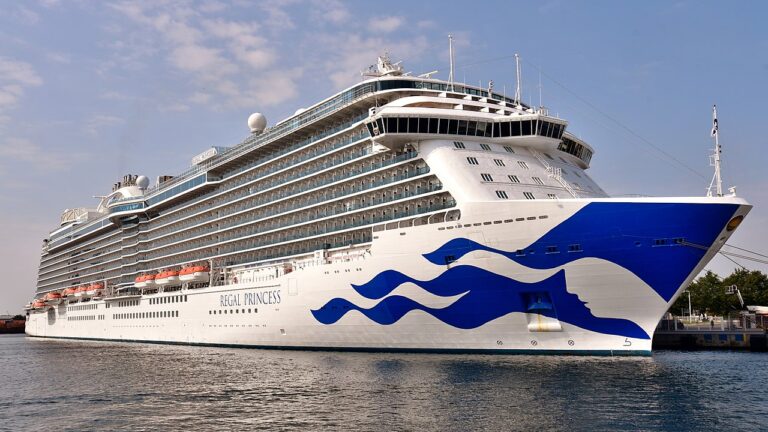Carnival PLC (LON:CCL) has today disclosed summary financial information for the quarter ended February 29, 2020, in connection with previously disclosed financing activities to improve its liquidity position.
First Quarter 2020 Summary Information
- U.S. GAAP net loss of $(781) million, or $(1.14) diluted EPS, for the first quarter of 2020, compared to U.S. GAAP net income for the first quarter of 2019 of $336 million, or $0.48 diluted EPS. First quarter 2020 net loss includes $932 million of goodwill and ship impairment charges, reduced by net gains on ship sales.
- First quarter 2020 adjusted net income of $150 million, or $0.22 adjusted EPS, compared to adjusted net income of $338 million, or $0.49 adjusted EPS, for the first quarter of 2019. First quarter 2020 adjusted net income excludes net charges of $932 million for the first quarter of 2020 and net charges of $2 million for the first quarter of 2019.
- The impact of COVID-19 on the first quarter 2020 net loss is approximately $0.23 per share, which includes cancelled voyages and other voyage disruptions, and excludes the impairment charges described above. Other previously disclosed voyage disruptions, noted during the Corporation’s December earnings conference call, also impacted first quarter 2020 results by approximately $0.12 per share.
- Total revenues for the first quarter of 2020 were $4.8 billion, higher than $4.7 billion in the prior year.
Outlook
For the first half of 2021, booking volumes since the Corporation’s last conference call in mid-December through March 1, 2020, have been running slightly higher than the prior year. Also for the first half of 2021 and during the two weeks ended March 15, 2020, the Corporation booked 546,000 Occupied Lower Berth Days (“OLBD”), albeit considerably behind the prior year pace. As of March 15, 2020, cumulative advanced bookings for the first half of 2021, are slightly lower than the prior year.
Wave season started strong with booking volumes for the three weeks ending January 26, 2020, running higher than the prior year for the remaining three quarters of the year on a comparable basis. For the seven week period beginning January 26, 2020 and ending March 15, 2020, booking volumes for the remainder of the year were meaningfully behind the prior year on a comparable basis as a result of the effects of COVID-19. As of March 15, 2020, cumulative advanced bookings for the remainder of 2020, are meaningfully lower than the prior year at prices that are considerably lower than the prior year on a comparable basis, reflecting the impact of COVID-19.
The Corporation previously announced a voluntary, temporary pause of its global fleet operations across all brands. The Corporation believes the ongoing effects of COVID-19 on its operations and global bookings will have a material negative impact on its financial results and liquidity. The Corporation also believes the effects of COVID-19 on the shipyards where its ships are under construction, will result in a delay in ship deliveries. The Corporation is taking additional actions to improve its liquidity, including capital expenditure and expense reductions, and pursuing additional financing. Given the uncertainty of the situation, the Corporation is currently unable to provide an earnings forecast, however it expects a net loss on both a U.S. GAAP and adjusted basis for the fiscal year ending November 30, 2020.
Capital Resources
As of February 29, 2020, the Corporation had a total of $11.7 billion of liquidity. This included $3.0 billion of immediate liquidity plus $2.8 billion from four committed export credit facilities that are available to fund the originally planned ship deliveries for the remainder of this year and $5.9 billion from committed export credit facilities that are available to fund ship deliveries originally planned in 2021 and beyond. On March 13, 2020, the Corporation fully drew down its $3.0 billion multi-currency revolving credit agreement (“Facility Agreement”). The Corporation borrowed under the Facility Agreement in order to increase its cash position and preserve financial flexibility in light of current uncertainty in the global markets resulting from the COVID-19 outbreak.
Substantially all of the Corporation’s assets, with the exception of certain ships with a net book value of approximately $6 billion as of February 29, 2020, are currently available to be pledged as collateral.
Explanations of Non-GAAP Financial Measures
We believe that gains and losses on ship sales, impairment charges, restructuring costs and other gains and expenses are not part of our core operating business and are not an indication of our future earnings performance. Therefore, we believe it is more meaningful for these items to be excluded from our net income (loss) and earnings per share and, accordingly, we present adjusted net income and adjusted earnings per share excluding these items.
Definitions
OLBDs represent the quantity of available lower berth days (“ALBD”) that are booked for sailing.
ALBD is a standard measure of passenger capacity for the period that is used to approximate rate and capacity variances, based on consistently applied formulas used to perform analyses to determine the main non-capacity driven factors that cause cruise revenues and expenses to vary. ALBDs assume that each cabin offered for sale accommodates two passengers and is computed by multiplying passenger capacity by revenue-producing ship operating days in the period.
Cautionary Note Concerning Factors That May Affect Future Results
Carnival Corporation and Carnival plc and their respective subsidiaries are referred to collectively in this document as “Carnival Corporation & plc,” “our,” “us” and “we.” Some of the statements, estimates or projections contained in this document are “forward-looking statements” that involve risks, uncertainties and assumptions with respect to us, including some statements concerning future results, outlooks, plans, goals and other events which have not yet occurred. These statements are intended to qualify for the safe harbors from liability provided by Section 27A of the Securities Act of 1933 and Section 21E of the Securities Exchange Act of 1934. All statements other than statements of historical facts are statements that could be deemed forward-looking. These statements are based on current expectations, estimates, forecasts and projections about our business and the industry in which we operate and the beliefs and assumptions of our management. We have tried, whenever possible, to identify these statements by using words like “will,” “may,” “could,” “should,” “would,” “believe,” “depends,” “expect,” “goal,” “anticipate,” “forecast,” “project,” “future,” “intend,” “plan,” “estimate,” “target,” “indicate,” “outlook,” and similar expressions of future intent or the negative of such terms.
Forward-looking statements include those statements that relate to our outlook and financial position including, but not limited to, statements regarding:
| • | Net revenue yields | • | Net cruise costs, excluding fuel per available lower berth day | ||
| • | Booking levels | • | Estimates of ship depreciable lives and residual values | ||
| • | Pricing and occupancy | • | Goodwill, ship and trademark fair values | ||
| • | Interest, tax and fuel expenses | • | Liquidity | ||
| • | Currency exchange rates | • | Adjusted earnings per share |
Because forward-looking statements involve risks and uncertainties, there are many factors that could cause our actual results, performance or achievements to differ materially from those expressed or implied by our forward-looking statements. This note contains important cautionary statements of the known factors that we consider could materially affect the accuracy of our forward looking statements and adversely affect our business, results of operations and financial position. It is not possible to predict or identify all such risks. There may be additional risks that we consider immaterial or which are unknown. These factors include, but are not limited to, the following:
- COVID-19 has negatively impacted and may continue to impact the ability or desire of people to travel, including on cruises, and may impact our ability to obtain acceptable financing to fund any resulting shortfalls in cash from operations.
- World events impacting the ability or desire of people to travel may lead to a decline in demand for cruises
- Incidents concerning our ships, guests or the cruise vacation industry as well as adverse weather conditions and other natural disasters may impact the satisfaction of our guests and crew and lead to reputational damage
- Changes in and non-compliance with laws and regulations under which we operate, such as those relating to health, environment, safety and security, data privacy and protection, anti-corruption, economic sanctions, trade protection and tax may lead to litigation, enforcement actions, fines, penalties, and reputational damage
- Breaches in data security and lapses in data privacy as well as disruptions and other damages to our principal offices, information technology operations and system networks and failure to keep pace with developments in technology may adversely impact our business operations, the satisfaction of our guests and crew and lead to reputational damage
- Ability to recruit, develop and retain qualified shipboard personnel who live away from home for extended periods of time may adversely impact our business operations, guest services and satisfaction
- Increases in fuel prices, changes in the types of fuel consumed and availability of fuel supply may adversely impact our scheduled itineraries and costs
- Fluctuations in foreign currency exchange rates may adversely impact our financial results
- Overcapacity and competition in the cruise and land-based vacation industry may lead to a decline in our cruise sales, pricing and destination options
- Geographic regions in which we try to expand our business may be slow to develop or ultimately not develop how we expect
- Inability to implement our shipbuilding programs and ship repairs, maintenance and refurbishments may adversely impact our business operations and the satisfaction of our guests
The ordering of the risk factors set forth above is not intended to reflect our indication of priority or likelihood.
Forward-looking statements should not be relied upon as a prediction of actual results. Subject to any continuing obligations under applicable law or any relevant stock exchange rules, Carnival expressly disclaim any obligation to disseminate, after the date of this document, any updates or revisions to any such forward-looking statements to reflect any change in expectations or events, conditions or circumstances on which any such statements are based.


